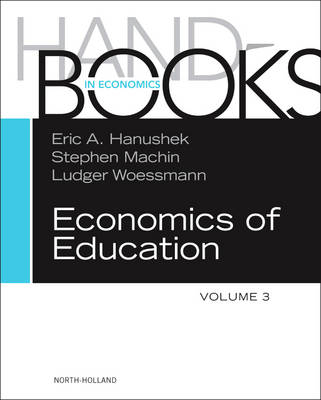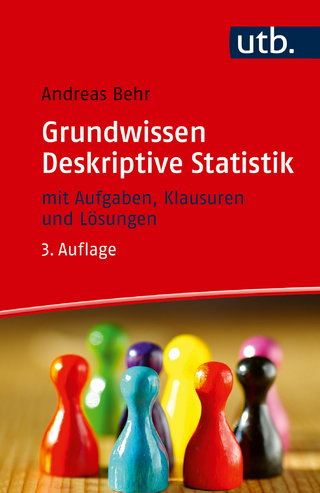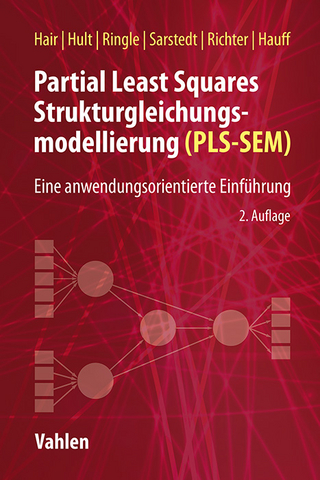
Handbook of the Economics of Education
North-Holland (Verlag)
978-0-444-53429-3 (ISBN)
How does education affect economic and social outcomes, and how can it inform public policy?Volume 3 of the Handbooks in the Economics of Education uses newly available high quality data from around the world to address these and other core questions. With the help of new methodological approaches, contributors cover econometric methods and international test score data. They examine the determinants of educational outcomes and issues surrounding teacher salaries and licensure. And reflecting government demands for more evidence-based policies, they take new looks at institutional feaures of school systems. Volume editors Eric A. Hanushek (Stanford), Stephen Machin (University College London) and Ludger Woessmann (Ifo Institute for Economic Research, Munich) draw clear lines between newly emerging research on the economics of education and prior work. In conjunction with Volume 4, they measure our current understanding of educational acquisition and its economic and social effects.
Eric Hanushek is the Paul and Jean Hanna Senior Fellow at the Hoover Institution of Stanford University. He is internationally recognized for his economic analysis of educational issues, and his research has had broad influence on education policy in both developed and developing countries. He received the Yidan Prize for Education Research in 2021. He is the author of numerous widely-cited studies on the effects of class size reduction, school accountability, teacher effectiveness, and other topics. He was the first to research teacher effectiveness by measuring students’ learning gains, which forms the conceptual basis for using value-added measures to evaluate teachers and schools, now a widely adopted practice. His recent book with Ludger Woessmann, The Knowledge Capital of Nations: Education and the Economics of Growth summarizes research establishing the close links between countries’ long-term rates of economic growth and the skill levels of their populations. He has authored or edited twenty-five books along with over 300 articles. He is a Distinguished Graduate of the United States Air Force Academy and completed his Ph.D. in economics at the Massachusetts Institute of Technology. hanushek@stanford.edu; http://hanushek.stanford.edu/ Stephen J. Machin is a Professor of Economics and Director of the Centre for Economic Performance at the London School of Economics. He is a Fellow of the British Academy, has been President of the European Association of Labour Economists, is a Fellow of the Society of Labor Economists and was an independent member of the UK Low Pay Commission from 2007-14. He was Chair of the Economics and Econometrics sub-panel of the UK’s 2021 Research Excellence Framework. He has researched and published extensively in various areas of empirical economics and public policy, including labour market inequality, the economics of education, industrial relations, social mobility, and the economics of crime. s.j.machin@lse.ac.uk; https://personal.lse.ac.uk/machin/ Ludger Woessmann is the Director of the ifo Center for the Economics of Education and Professor of Economics at the University of Munich. He is also Distinguished Visiting Fellow at the Hoover Institution, Stanford University. Being interested in the determinants of long-term prosperity of mankind, his main research focus is on the economics of education, especially the importance of education for economic prosperity and the effects of school systems on educational achievement and equality of opportunity. He is Fellow of the German National Academy of Sciences Leopoldina, the Academic Advisory Council of the German Federal Ministry of Economics, and the International Academy of Education. https://sites.google.com/view/woessmann-e
1. Econometric Methods for Research in Education
2. The Economics of International Differences in Educational Achievement
3. Education and Family Background: Mechanisms and Policies
4. Peer Effects In Education: How Might They Work, How Big Are They and How Much Do We Know Thus Far?
5. Teacher Compensation and Collective Bargaining
6. Licensure: Exploring the Value of this Gateway to the Teacher Workforce
7. The Economics of Tracking in Education
8. School Accountability
9. The GED
10. Housing Valuations of School Performance
11. Apprenticeship
| Erscheint lt. Verlag | 11.11.2010 |
|---|---|
| Reihe/Serie | Handbook of the Economics of Education |
| Sprache | englisch |
| Maße | 191 x 235 mm |
| Gewicht | 1180 g |
| Themenwelt | Sozialwissenschaften ► Pädagogik |
| Wirtschaft ► Volkswirtschaftslehre ► Ökonometrie | |
| ISBN-10 | 0-444-53429-6 / 0444534296 |
| ISBN-13 | 978-0-444-53429-3 / 9780444534293 |
| Zustand | Neuware |
| Haben Sie eine Frage zum Produkt? |
aus dem Bereich


